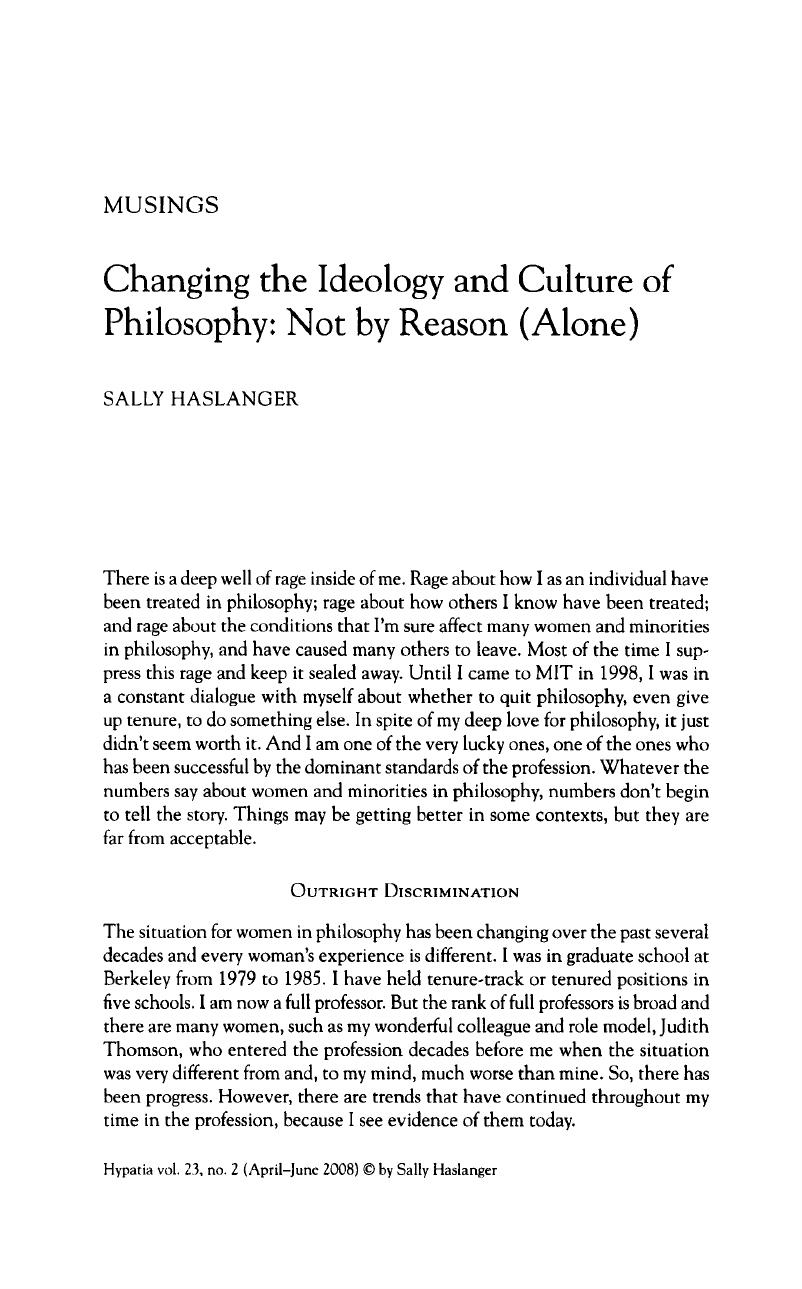Crossref Citations
This article has been cited by the following publications. This list is generated based on data provided by Crossref.
Calhoun, Cheshire
2009.
The Undergraduate Pipeline Problem.
Hypatia,
Vol. 24,
Issue. 2,
p.
216.
Richardson, Sarah S.
2009.
The Left Vienna Circle, Part 2. The Left Vienna Circle, disciplinary history, and feminist philosophy of science.
Studies in History and Philosophy of Science Part A,
Vol. 40,
Issue. 2,
p.
167.
Intemann, Kristen
Lee, Emily S.
McCartney, Kristin
Roshanravan, Shireen
and
Schriempf, Alexa
2010.
What Lies Ahead: Envisioning New Futures for Feminist Philosophy.
Hypatia,
Vol. 25,
Issue. 4,
p.
927.
Buckwalter, Wesley
and
Stich, Stephen
2010.
Gender and Philosophical Intuition.
SSRN Electronic Journal,
Schwitzgebel, Eric
and
Rust, Joshua
2010.
Do Ethicists and Political Philosophers Vote More Often Than Other Professors?.
Review of Philosophy and Psychology,
Vol. 1,
Issue. 2,
p.
189.
Fehr, Carla
and
Plaisance, Kathryn S.
2010.
Socially relevant philosophy of science: an introduction.
Synthese,
Vol. 177,
Issue. 3,
p.
301.
Alcoff, Linda Martín
2010.
Epistemic Identities.
Episteme,
Vol. 7,
Issue. 2,
p.
128.
Stich, Stephen
2010.
Philosophy and WEIRD intuition.
Behavioral and Brain Sciences,
Vol. 33,
Issue. 2-3,
p.
110.
Landau, Iddo
2010.
On the Marginalization of Feminist Philosophy.
International Journal of Philosophical Studies,
Vol. 18,
Issue. 4,
p.
551.
Richardson, Sarah S.
2010.
Feminist philosophy of science: history, contributions, and challenges.
Synthese,
Vol. 177,
Issue. 3,
p.
337.
Poltera, Jacqui
2011.
Women and the Ethos of Philosophy: Shedding Light on Mentoring and Competition.
Hypatia,
Vol. 26,
Issue. 2,
p.
419.
Rooney, Phyllis
2011.
Feminist Epistemology and Philosophy of Science.
p.
3.
Altorf, Marije
2011.
After Cursing the Library: Iris Murdoch and the (In)visibility of Women in Philosophy.
Hypatia,
Vol. 26,
Issue. 2,
p.
384.
Wylie, Alison
2011.
Women in Philosophy: The Costs of Exclusion—Editor's Introduction.
Hypatia,
Vol. 26,
Issue. 2,
p.
374.
Lee, Carole J.
and
Schunn, Christian D.
2011.
Social Biases and Solutions for Procedural Objectivity.
Hypatia,
Vol. 26,
Issue. 2,
p.
352.
Superson, Anita
2011.
Strategies for Making Feminist Philosophy Mainstream Philosophy.
Hypatia,
Vol. 26,
Issue. 2,
p.
410.
Paxton, Molly
Figdor, Carrie
and
Tiberius, Valerie
2012.
Quantifying the Gender Gap: An Empirical Study of the Underrepresentation of Women in Philosophy.
Hypatia,
Vol. 27,
Issue. 4,
p.
949.
Antony, Louise
and
Cudd, Ann E.
2012.
The Mentoring Project.
Hypatia,
Vol. 27,
Issue. 2,
p.
461.
Saul, Jennifer
2012.
Ranking Exercises in Philosophy and Implicit Bias.
Journal of Social Philosophy,
Vol. 43,
Issue. 3,
p.
256.
Hay, Carol
2013.
Kantianism, Liberalism, and Feminism.
p.
1.



